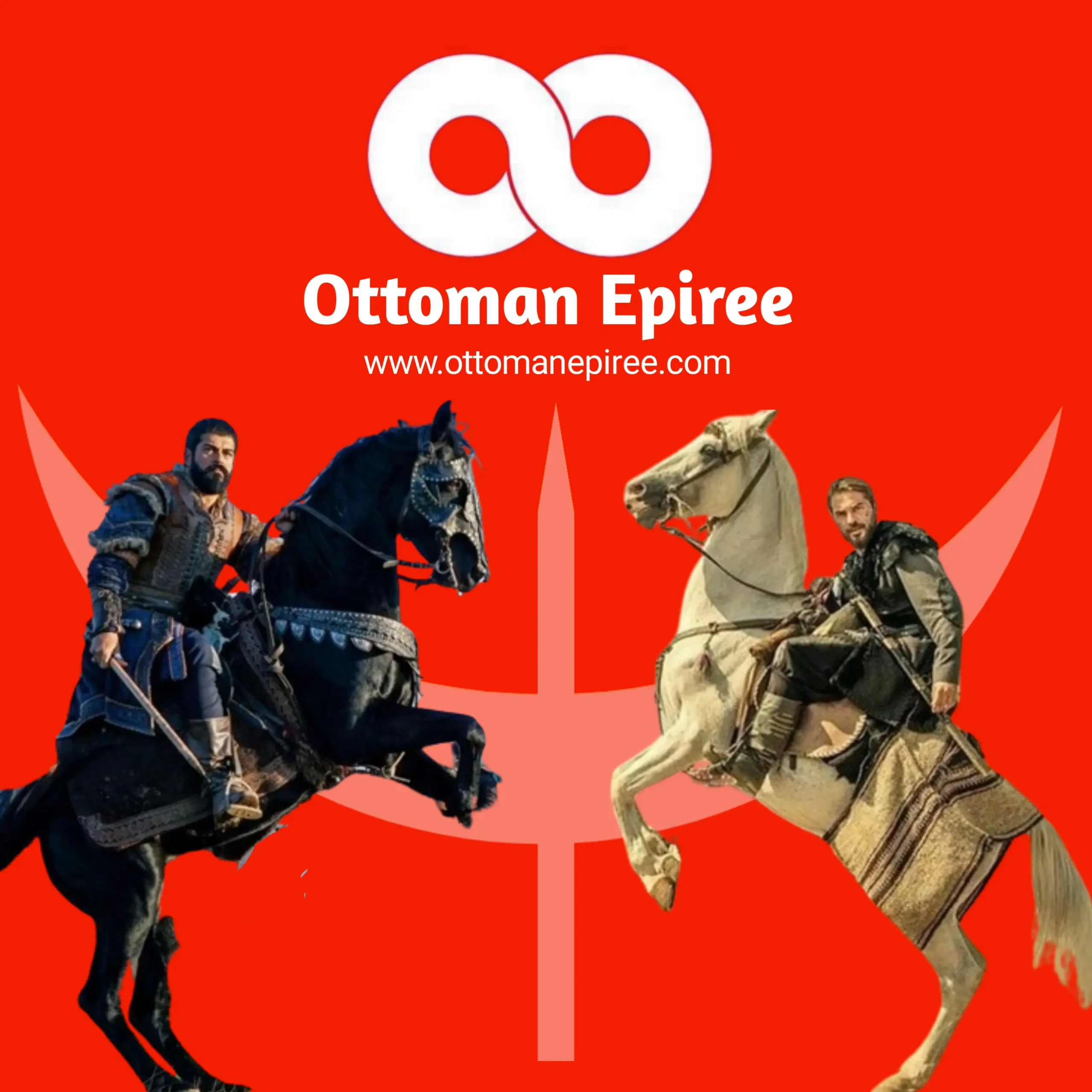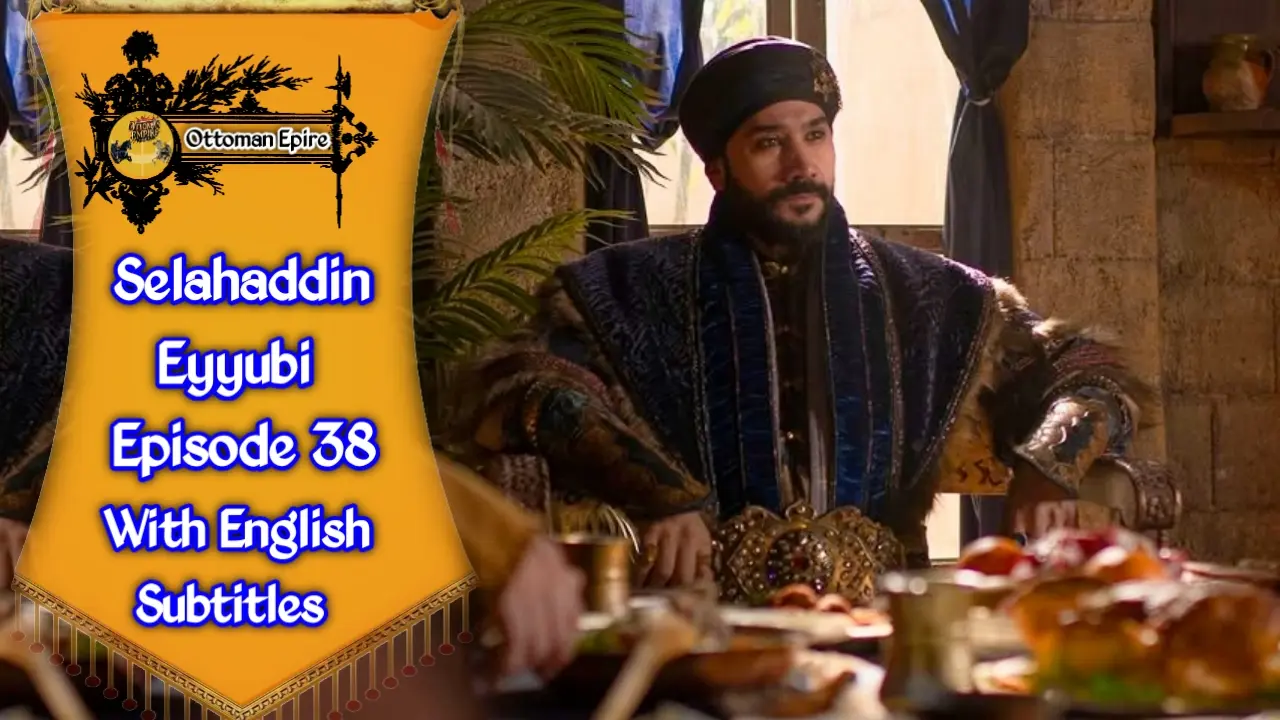Kudus Fatihi Selahaddin Eyyubi Season 2 Episode 38
Saladin’s Rise as Vizier After Shirkuh’s Death
Kudus Fatihi Selahaddin Eyyubi Season 2 Episode 38
Episode 38 begins with a turning point that reshapes Egypt’s political landscape. After the death of his uncle, Emir Shirkuh al-Mansur, the responsibility of the vizierate falls upon Saladin. This appointment, officially sanctioned by Sultan Nur ad-Din’s decree, marks Saladin’s transformation from a loyal military commander into the central figure of governance in Egypt. Rather than treating the new role as a mere title, Saladin immediately begins to act with vision and decisiveness.
His first step is the creation of the Mezalim Council, an institution designed to bring justice and accountability to public life. Through this council, the hidden problems of Egypt start to surface, exposing corruption, oppression, and inequality that had long been ignored. This scene signals Saladin’s ability to combine moral authority with political power, presenting him as both a reformer and a leader destined for greatness.
The Council of Justice and Shamsa’s Demands
The Mezalim Council quickly becomes more than an administrative tool; it transforms into a stage where personal grievances and social issues come to light. One of the most striking moments is when Shamsa confronts the council, demanding answers about Mila’s involvement in the death of Gulchehre. Her accusation injects personal loss into the political environment, showing how justice and leadership are inseparably connected.
Saladin is placed in a delicate position where he must weigh fairness against emotion, law against loyalty. The scene reflects the challenges of leadership, every decision he makes has consequences not only for the state but also for individuals whose lives and grief weigh heavily on the scales of justice. This moment also underscores the complexity of Saladin’s role as a leader who must balance compassion with authority.
Sultan Nur ad-Din’s Eyes on Kerek
While Saladin stabilizes Egypt, the ambitions of Sultan Nur ad-Din remain fixed on the broader map of the region. His focus sharpens on Kerek, a fortress of immense strategic value because it controls the pilgrimage and trade routes that pass through the area. Nur ad-Din recognizes that whoever controls Kerek controls the flow of wealth and faith across the region, making it a critical stronghold. This order demonstrates Nur ad-Din’s sharp strategic mind, always looking at the larger picture. By linking Egypt’s affairs with the security of Kerek, the episode shows how regional politics operated like a chessboard, where every move had far-reaching consequences.
Mila’s Humiliation and Her Emotional Conflict
Countess Mila’s journey in this episode carries heavy emotional weight. Before being sent away, she suffers a public humiliation in Cairo, a punishment that tears open old wounds and intensifies her inner turmoil. The experience leaves her resentful towards Saladin, whom she blames for the disgrace she endures. However, the story takes an unexpected turn when Saladin himself steps in to shield her from further harm, offering a hand of protection instead of cruelty.
This action confuses Mila, turning her hatred into a mixture of anger, confusion, and reluctant respect. The writers craft this subplot beautifully, showing how power, dignity, and emotion intertwine in times of upheaval. Mila’s conflicted feelings also foreshadow the role she may play in shaping events to come, adding depth to the unfolding narrative.
King Amalric and the Threat Hidden in Grain
Meanwhile, in Jerusalem, King Amalric makes a startling discovery that shifts his perspective on the security of his kingdom. He finds wheat inside his palace, a seemingly ordinary grain but one that carries a symbolic and strategic warning. To Amalric, this means that Sultan Nur ad-Din has managed to infiltrate even the heart of Jerusalem, undermining the strength of his rule. Humiliated and enraged, Amalric vows to retaliate, determined to give Nur ad-Din a lesson that cannot be forgotten.
This subplot adds suspense to the episode, highlighting how espionage, psychological tactics, and the control of resources played crucial roles in the struggle between Crusader states and Muslim leaders. It reminds the audience that wars are fought not only with swords and armies but also with strategies that strike at the very core of trust and stability.
The Battle for Ibelin’s Loyalty
Another major theme in Episode 38 revolves around the fate of Ibelin, a significant stronghold whose loyalty could change the balance of power. The question arises: will Ibelin remain under Chatillon’s influence, backed strongly by King Amalric, or will it align with Balian, who carries the trust and support of the local population? This dilemma highlights the dual nature of medieval politics, where both military might and popular legitimacy determined authority. Balian’s efforts to win Ibelin’s loyalty show that leadership often depends on moral strength as much as political alliances. By contrasting Chatillon’s reliance on power with Balian’s connection to the people, the episode illustrates two competing visions of rule.
Saladin Challenges the Caliph and Egypt’s Elite
While these events unfold, Saladin confronts one of his greatest challenges yet—the entrenched elite of Egypt. Refusing to allow luxury and wealth to remain concentrated in the hands of a few, he demands that the Caliph’s personal fortune be moved to the vizier’s treasury for the benefit of the people. By giving the Caliph a strict two-day deadline, Saladin proves his determination to prioritize the welfare of his subjects over the privileges of rulers. This confrontation creates immense tension, as it pits Saladin against the established structures of power in Cairo. The decision paints him as a bold reformer who is unafraid of resistance if it means improving the lives of ordinary people.
Wealth, Power, and the People’s Welfare
The conflict surrounding the Caliph’s wealth becomes more than a political issue—it becomes a moral statement about the purpose of leadership. Saladin emphasizes that rulers exist to serve their people, not to hoard riches for personal gain. By challenging the Caliph directly, he risks stirring resentment among Egypt’s ruling class, but his stance also earns him admiration from those who suffer under inequality. The episode portrays this moment as a test of both courage and principle, reminding viewers that true leadership requires difficult choices that may bring short-term struggles but long-term justice.
Strained Ties Between Saladin and Nur ad-Din
As Saladin implements reforms and makes independent decisions in Egypt, Sultan Nur ad-Din begins to show signs of anger and frustration. Saladin’s approach to the issues of Kerek and Ibelin does not align with the Sultan’s expectations, leading to tension between the two allies. This subplot introduces a critical turning point in their relationship, suggesting that the unity of Muslim leadership is not guaranteed. Saladin now faces not only external enemies but also the challenge of maintaining respect and balance with the Sultan who placed him in power. The episode uses this tension to explore the complexity of political alliances, where friendship and authority can easily shift into rivalry.
Saladin’s Mission Against Chatillon
The episode culminates with Saladin’s vow to confront Chatillon directly. Determined to bring his head to Damascus as a sign of loyalty and strength, Saladin embarks on a mission that is as dangerous as it is symbolic. Success would reinforce his authority with Sultan Nur ad-Din, while failure could deepen the rift between them. This cliffhanger leaves viewers on edge, eager to see how Saladin navigates the perils of both battlefield strategy and political expectations. The closing moments emphasize that every victory carries a cost and every decision shapes the future.
Key Highlights of Kudus Fatihi Selahaddin Eyyubi Season 2 Episode 38
| Main Event | Interesting Line | Impact on Story |
|---|---|---|
| Saladin’s Appointment | “Saladin rises as Vizier after Shirkuh’s death.” | Marks a historic transition of power in Egypt. |
| Justice Council | “The Mezalim Council exposes Egypt’s hidden injustices.” | Reflects Saladin’s vision for fairness and reform. |
| Mila’s Conflict | “Mila’s hatred turns into conflicted emotions after Saladin protects her.” | Creates emotional depth and character tension. |
| Amalric’s Suspicion | “King Amalric vows revenge after finding Nur ad-Din’s grain inside Jerusalem.” | Builds suspense and political intrigue. |
| Challenge to the Caliph | “Saladin dares to confront the Caliph, demanding his wealth for the people.” | Shows bold leadership and fearless reform. |
Short Summary of Kudus Fatihi Selahaddin Eyyubi Season 2 Episode 38
- Saladin becomes Vizier of Egypt after Shirkuh’s death, with authority from Sultan Nur ad-Din.
- He establishes the Mezalim Council to deliver justice and expose corruption.
- Mila faces humiliation but develops conflicted feelings toward Saladin after he protects her.
- King Amalric discovers Nur ad-Din’s hidden influence in Jerusalem and vows revenge.
- Saladin demands the Caliph’s wealth for the people, creating tension with Egypt’s elite.
- Sultan Nur ad-Din grows angry at Saladin’s independent policies, straining their alliance.
- The episode ends with Saladin vowing to bring Chatillon’s head to Damascus.
FAQs – Kudus Fatihi Selahaddin Eyyubi Season 2 Episode 38
Saladin becomes Vizier of Egypt after Shirkuh’s death.
A justice council created by Saladin to fight corruption.
She hates Saladin for humiliating her but feels respect when he protects her.
He finds Nur ad-Din’s grain inside Jerusalem and vows revenge.
Saladin’s independent decisions about Kerek and Ibelin strain their alliance.
- Kudus Fatihi Selahaddin Eyyubi Complete Story and Seasons
- Kudus Fatihi Selahaddin Eyyubi Season 2 Episode 37 Cairo Siege and Throne Conflicts
- Kudus Fatihi Selahaddin Eyyubi Season 2 Episode 36 Cairo Conflicts and Strategic Battles
- Selahaddin Eyyubi Season 2 Episode 31 Bakras Fortress And Betrayals
- Selahaddin Eyyubi Season 2 Episode 33 Uncovers Hidden Plots in Cairo

